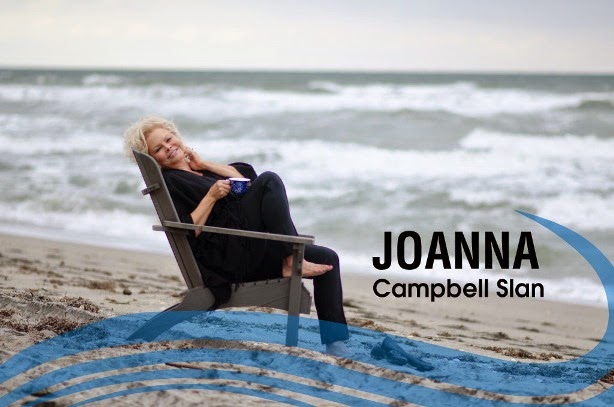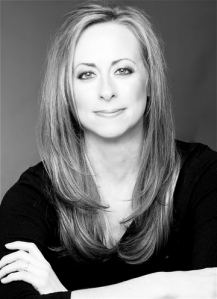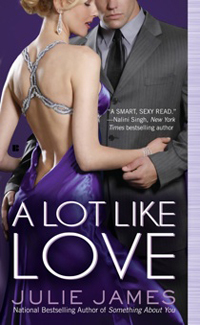1. JCS—I guess the big question is why? Hank, you were/are already an award-winning reporter. A huge success. So why did you decide you wanted to add being an author to your list of accomplishments?
HPR--Well, thank you. Your question made me stop and think—because it wasn’t so much “author” I was going for...as I just had this terrific idea for a story. You know how when you have a good idea, you just know it? And I got a strange spam in my email one day, and it crossed my mind—maybe it’s a secret message. And I just—stopped in my tracks. It was such a perfect plot for a mystery novel, and I just—knew it. And from that moment I was obsessed with writing the story of whether there could be secret messages in computer spam, and how that would work, and who would do it...and why. And that became PRIME TIME!
2. JCS—The original draft of Prime Time was not the same as the draft that eventually got published. Would you share with us what happened? What changes you made? I know that your agent (or was it the editor) didn’t know if you could revise your book, but you did. How hard was that? Most folks get stuck in a mental rut and can’t make changes in tone, but you did. How?
HPR--So interesting. The initial draft of PRIME TIME—well, you have to remember, I had no idea what I was doing. I’ve been writing television news stories and investigative reporter for more than 30 years, so I figured a story is a story, how hard can it be? Which was, of course, absurd.
Anyway, the first draft of PRIME TIME was lighter, funnier, and the main character Charlotte McNally was a little—ditzy and self-centered. It was chick lit, no question, and I finished it just as the chick lit genre was crashing.
I got the nicest rejection from an editor—who said, essentially, she loved the whole thing—except for the tone. And she told my agent she’d be interested in reading it if I could make it less “chick lit” and more “women’s fiction” mystery.
Well, after so long in TV, I’ve had editors say: can you make it more investigative? Or more featurey? Or shorter? Or longer? Can you do it like—a SONG? (Okay, kidding. ) But the idea of re-editing for tone was not outrageous to me. I saw the editor’s point. And it was a fascinating thought.
My agent said, “I don’t think you can do it.” (She was my agent at the time. I now have a different agent.)
I’ll never know if she was telling the truth, or trying to challenge me.
But I had no doubt I could do it.
I just thought of the story in a different way—and went through every line and scene, thinking: what would make my characters have more depth? Be more thoughtful? Stronger? Be more connected to the real world and real conflicts? What would make people care?
I went through the whole thing wearing that filter. And so interesting—the result was EXACTLY the same plot. Exactly. But it just had a different feel.
Get the right editor—and it can change your life.
3. JCS—Your father is a music critic. What did you learn from him that has an impact on your career as a writer? On how you take criticism? On how you approach the craft of writing?
HPR--I’ve never thought about that. (He’ll be happy to hear that, huh?) My dad is very—honorable. Very reliable. Very sincere and tolerant and loving. (He left the newspaper to join the foreign service, and retired after 35 years as a diplomat.) He’s written two non-fiction books on American music, and he’s incredibly organized about it. SO there’s that.
He’s also incredibly straightforward. When he read one the first things I wrote (not one of the Charlie McNally books), he said: “Honey, this is really a good start. But there’s a thing called ‘voice.’ And you don’t have it.”
I remember that so well! Back then, I had no idea what he was talking about. But it made me think about what he meant, and about authenticity. That was—fifteen years ago, I guess.
My stepfather was a really brilliant lawyer. From him I learned to question everything. And to be persistent. And never to be satisfied until something is the best it can be.
4. JCS—Your pacing is exquisite. You’ve said that everything must serve the story. Do you have any sorts of tests you use to check for pacing? What’s your plotting process? How do you know if you’ve gotten bogged down—and what do you do to speed up the drama?
HPR--Thank you! (These questions are so nice…) And yes, of course, the story is the only thing that matters!
When I do long-form television stories, I print out my draft scripts, and use a pink magic marker to highlight the “cool parts.” That’s what I call them, I know it sounds silly. If the cool parts are too smooshed together, or it there’s too much time without one, I know I have a pacing problem.
Same with my book manuscripts. It’s like—leading someone though the forest, by telling them there might be a gold coin on the path along the way. To keep them going, the gold coins have to be there, and you want to make sure there are enough of them along the path so they continue with their journey, and can’t resist taking the next steps to get the next one.
See what I mean? It’s the same with writing a page-turner. There has to be a compelling thing, a big question or an important conflict or a critical decision—something that makes the reader unable to stop.
And how do I know? Besides “pinking,” I just read over what I typed the day before. If my mind wanders, or if I find myself thinking, yeah yeah, blah blah , get on with it—then I know I’ve got to ratchet up the suspense and timing. I say: why do I care about what’s happened here? And then I do something to make myself care.
The “plotting process”? Cue crazed laughter. I usually start with one cool, unique element. The secret messages in spam, or in DRIVE TIME, they way a certain code would work. (You’ll never look at parking garages the same way!) Then I mull over—with my characters—what would REALLY happen next? And then, I see.
I know, that’s not helpful. What can I tell you? The ideas come when they’re meant to come. (So far. Knock on wood.)
5. JCS—Undoubtedly, you are the nicest person in the world. I mean, everyone thinks she’s/he’s your best friend. Although you will soon be building an addition to your home to house all your awards, you are always friendly, approachable, and kind. Are you really that nice? What keeps you so grounded? Is this a career strategy or a personal quirk or a genetic trait?
HPR--I’m laughing too hard to answer this. People are often surprised that I’m “nice”—in my job as investigative reporter, I’m always confrontational, demanding, critical. I guess...I try to remember we’re all doing the best we can, you know, even if it doesn’t always come out that way.
I also sort of live by the mantra—“you never know.” You never know what’s good or bad when it happens, right? And people always say: “someday we’ll laugh about this.” I say—laugh sooner.
6. JCS—Your mother must be one of the smartest women on the planet, and I know her advice to you has been invaluable. Could you share some of her wisdom? Tell us how that governs your actions as an author and a person.
HPR—Oh, just ask her! (Couldn’t resist, mom.) She’s incredibly—supportive, but never lets me off the hook. When I won my most recent Emmy (yes, the 27th) she said—Oh, honey, do you still care about that?
But you’re right, Joanna, she is amazing. I called her when I was in the midst of Prime Time, about halfway through, and I said Mom, I love this book, it’s funny, it’s original, and I love the characters. But this is much more difficult than I ever could have imagined. I’m just—not sure I can finish it.
And there was this pause, and then she said “Well, honey, you will if you want to.”
And, blam. That was all I needed to hear. I think about that all the time. I realized that my future was in my hands. Depending on my desire, and my passion, and my hard work.
7. JCS—How much of you is Charlie? How are you different? Does her relationship with Josh parallel your relationship with Jonathan? Do you ever worry about revealing too much of yourself and your inner fears through Charlie?
HPR—Fine fine fine. A lot of Charlie is me. She’s younger than I am, yes, and funnier, and a better driver, and a little more confident. But she—as I was for many years—is married to her job in television, and wonders what happens when the camera doesn’t love her anymore. And yes, actually, I did worry about becoming the poster child for “aging women in television.” I guess that happened, but turns out, I’m happy with that!
Fictional heartthrob Josh parallels real-life heartthrob husband Jonathan? Ah..I have to say, not at all. They’re both terrific. And I adore them both. But really? Josh is completely fictional, and their relationship is very different.
8. JCS—Tell us about your schedule. You’re an indefatigable promoter. You’ve just sold a new suspense series. You write short stories. You’re always on the road. How do you keep all those balls in the air? Do you ever have any Down Time? (That’s a suggestion for another title, eh?) How do you relax or do you?
HPR—Yes, my new series! I’m incredibly happy with the whole thing—the first is THE OTHER WOMAN, and it’s a novel of suspense about a disgraced TV reporter on the trial of an ex-governor’s secret mistress. (And I was finished with the book before Arnold and Maria’s situation. So that was quite amazing.) As one character in THE OTHER WOMAN says: “You can choose your sin, but you cannot choose your consequences.”
I think the log line might be: Seduction, betrayal and murder—it’s going to take more than votes to win this election.
It’ll be out in hardcover from Forge Books in 2012, and the next one in 2013. (The amazing Lisa Scottoline says: A killer plot, compelling characters and non-stop suspense. Riveting!")
I can do the crazy schedule because I love it. I just—love it. And Jonathan is incredibly supportive. Sleep was the first to go, then cooking, then laundry. But we’ve worked that out. Well, not the sleeping so much, but I’ve learned to go on less.
Relaxing? Hobbies? Here’s a real confession: I have a very hard time with that. I have no hobbies. It’s probably a problem, actually. But for now, I’ll just ignore that.
9. JCS—What’s the best writing advice you can share?
HPR—It’s all fine. It’s fine, and if it’s not fine now, it’ll be fine later. You can always fix it, you can always make it better, things always work .Face your problems, and they’re never as bad as they seem at first. There’s a motto on my bulletin board: “What would you attempt to do if you knew you could not fail?” That’s how I try to think about things. I just figure—it’ll work. Maybe it’ll be in a way you didn’t predict, you know? But maybe that’ll be even better.
You can worry along the way, or you can not worry. And you’ll arrive at EXACTLY the same place. So why not enjoy it?

























